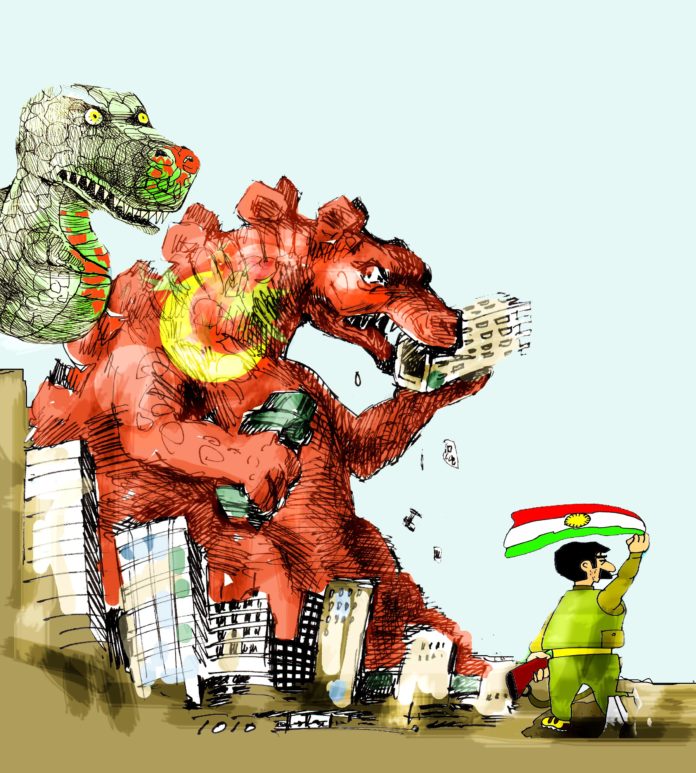The Middle East is aflame and the political world is in an uproar over the third Turkish incursion into Syria under the code name “Peace Spring.” With this current invasion in Syria, President Recep Tayyip Erdogan’s avowed intention is to carve out a “peace corridor” 500 kilometers long and 30 kilometers deep, expelling 40,000 Kurds from that territory and resettling 3.6 million Syrian Arab refugees currently living in Turkey.
Erdogan’s audacious plan to occupy a segment of a sovereign country’s territory, to slaughter the local Kurdish population and conduct population engineering was made possible when the erratic US president, Donald Trump, arbitrarily ordered the withdrawal of the US forces from the area, contrary to the recommendations of his advisors and against the objections of Pentagon analysts.
Turkey would not have dared to take that kind of initiative had the political conditions not been right for the action.
Turkey invaded and occupied 38 percent of the territory of Cyprus in 1974 and no force has been able to dislodge Turkey’s occupation army, nor its creation of a made-up country on that soil.
Similarly, Ankara has stationed its forces on Iraqi territory for a variety of reasons and the international community has been quiet on the issue.
Turkey has established military bases in five countries, which allows Ankara to act as a superpower.








